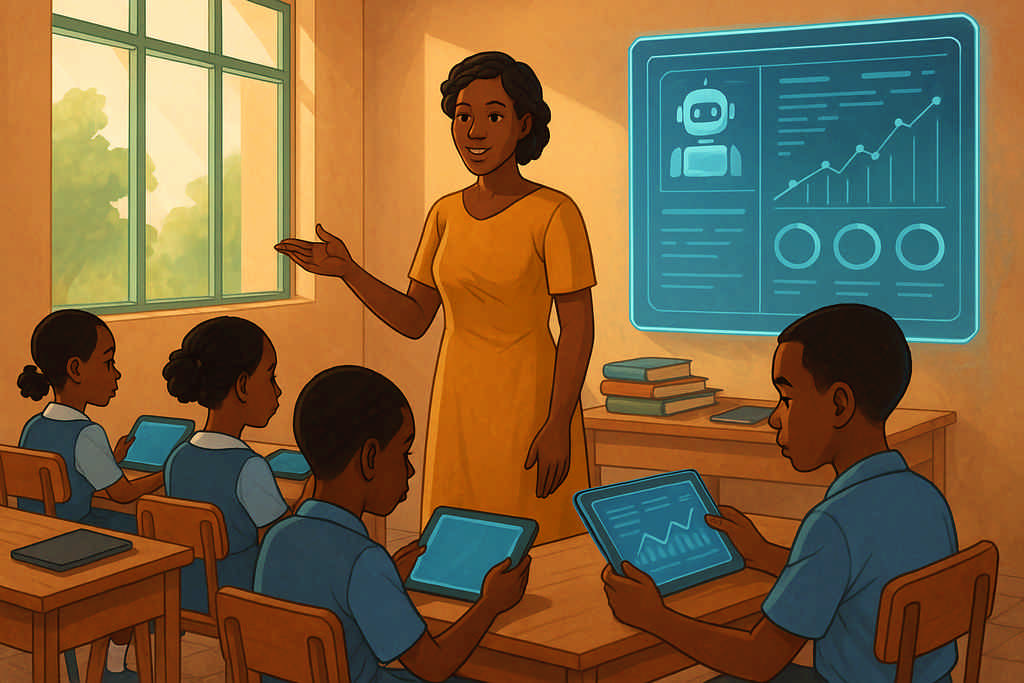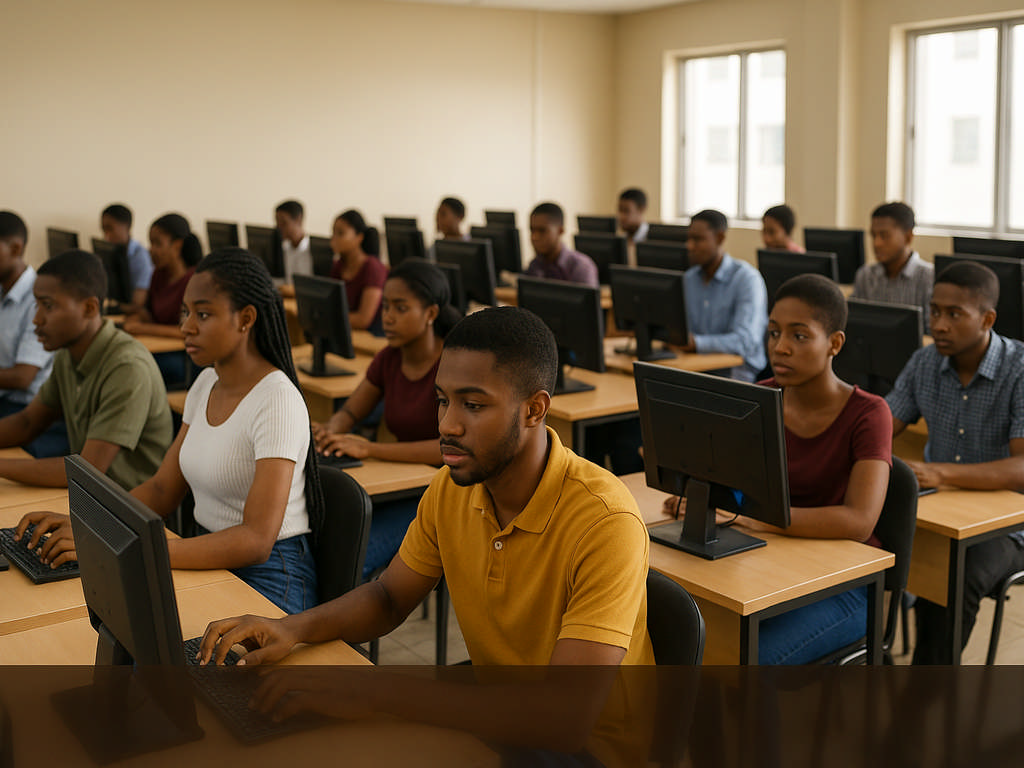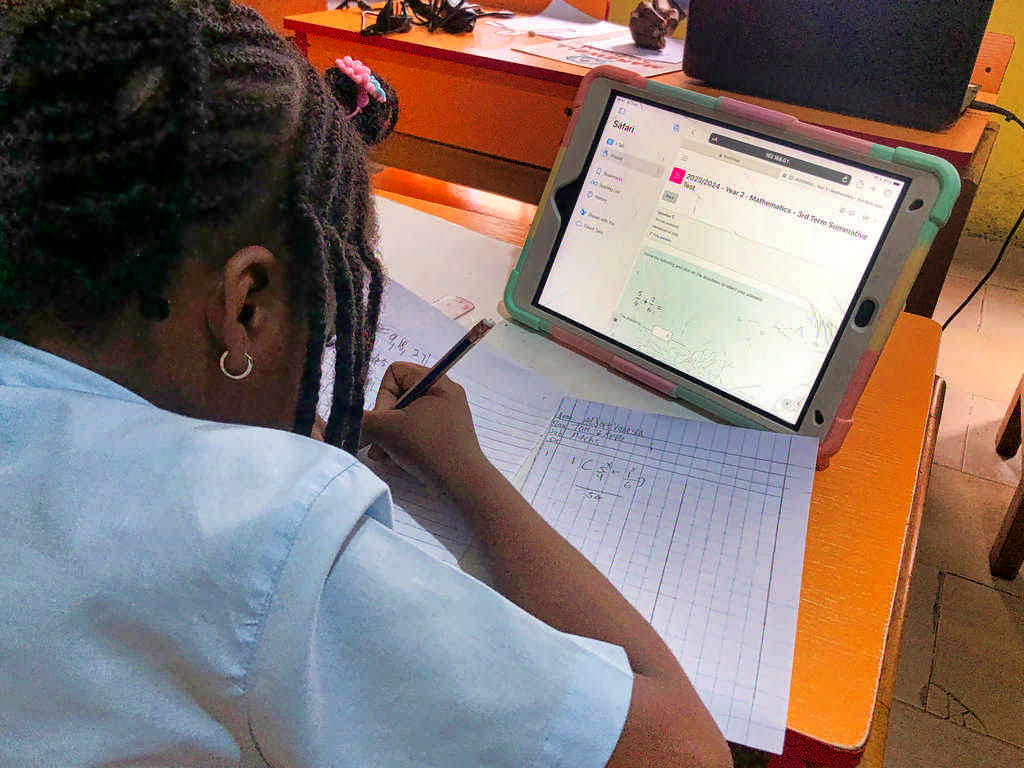
Should Teachers Be Afraid? Rethinking the Role of Educators in an AI-Driven World
Workers' Day, celebrated on May 1st, offered a powerful moment to reflect not only on labour rights and achievements but also on the evolving definition of work in our modern world. Nowhere is this evolution more pronounced than in education, where the rapid advancement of Artificial Intelligence (AI) is challenging long-standing perceptions about the role of teachers.
Earlier in the year, this year's International Day of Education (January 24th, 2025), themed “AI and Education: Preserving Human Agency in a World of Automation,” was marked. The theme invites us to reconsider what it means to be an educator in an era where machines can write essays, analyze learning patterns, and even offer personalized tutoring. The question looms large: Should teachers be afraid?
If embraced wisely, AI has the potential to amplify the role of educators, not diminish it. Our flagship product, FiFiJi, for instance has an AI-driven feature that instantly generates a Course Performance and Recommendations report for the attention of a course teacher or facilitator at the completion of a summative test taken by learners enrolled for that course. This shaves off days of intensive work that would have otherwise been required of the course handler to execute the task. Moreover, the teacher is empowered by the immediacy and promptness of the information made available in the report.
Historically, teaching has been one of the most human-centric professions—built on empathy, inspiration, mentorship, and the capacity to shape futures. But AI’s arrival in classrooms through smart tutoring systems, automated grading, adaptive assessments, and even lesson planning tools seems to signal a shift.
It’s not just the tools that are changing—it’s the job description. Educators are being called to adapt to roles that are increasingly hybrid: part facilitator, part data analyst, part coach.
Fear vs. Opportunity: Two Sides of the AI Coin
It’s understandable that some teachers feel anxious. With AI handling tasks like grading and content delivery, it can feel like the profession is being deconstructed. But should this fear paralyze us—or provoke growth?
Let’s be clear: AI is not replacing teachers. It’s replacing tasks. And many of those tasks—manual grading, repetitive content delivery, basic assessment—are precisely the ones that limit the depth of teacher-student engagement.
If embraced wisely, AI has the potential to amplify the role of educators, not diminish it. Our flagship product, FiFiJi, for instance has an AI-driven feature that instantly generates a Course Performance and Recommendations report for the attention of a course teacher or facilitator at the completion of a summative test taken by learners enrolled for that course. This shaves off days of intensive work that would have otherwise been required of the course handler to execute the task. Moreover, the teacher is empowered by the immediacy and promptness of the information made available in the report.
Why Human Teachers Remain Irreplaceable
- Emotional Intelligence: No AI can replicate the ability of a teacher to read a room, understand a student’s frustration, or provide encouragement that sparks confidence.
- Contextual Judgement: AI lacks the nuanced understanding of cultural, personal, and developmental factors that influence learning.
- Moral and Ethical Guidance: Teachers shape not just academic skills but values and character—areas where human agency is critical.
- Creativity and Inspiration: While AI can assist, only human teachers can connect storytelling, humour, and personal experience to make learning resonate.
What Teachers Must Do to Stay Relevant
The question is not whether AI will be part of the classroom, but how teachers can shape its use. Here’s how educators can future-proof themselves:
- Adopt a Growth Mindset: Continuous learning isn’t just for students. Teachers must evolve with the times—learning about AI tools, ethics, and pedagogy.
- Focus on Uniquely Human Skills: Communication, empathy, collaboration, and mentorship are irreplaceable assets.
- Use AI as an Ally: Integrate AI to personalize learning, free up time, and gain deeper insights into student needs.
- Participate in Policy & Design: Educators should be at the table where EdTech solutions are designed and education policies are shaped.
So, should teachers be afraid? Not if they choose transformation over resistance. The real challenge—and opportunity—lies in redefining teaching not as a set of tasks, but as a profound human endeavour that thrives even more in partnership with technology.
AI may assist in delivering education, but only humans can truly educate.
As we celebrate both Workers' Day and ruminate on the theme of the International Day of Education, let’s champion not just the survival of teachers, but their elevation in a world that needs them more than ever.





Be the first to comment!